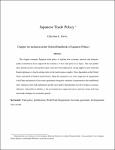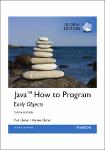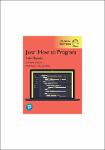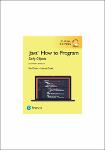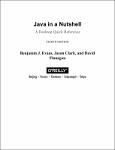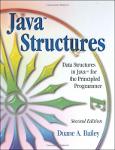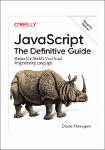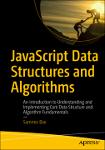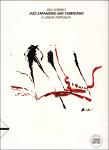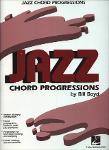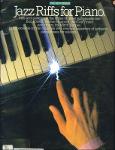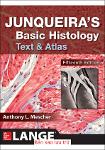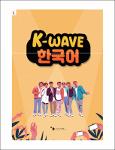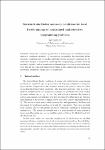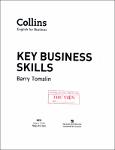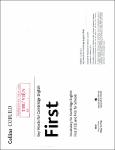- Khác/Other
Authors: Christina L. Davis (2020) - This chapter examines Japanese trade policy to explain how economic interests and domestic
political institutions have supported the resilience of free trade policies in Japan. The mercantilist
ideas and the reactive state model of past years have been replaced by strong support of free trade and
Kantei diplomacy to lead in setting rules for the trade regime complex. Once dependent on the United
States and mired in bilateral trade friction, Japan has emerged as an active supporter of engagement
with China and pursuit of free trade agreements alongside continued commitment to the multilateral
rules. Japanese-style trade adjustment and the slow path to liberalization served to bal...
|
- Sách/Book
Authors: Harvey Deitel (2014) - MyProgrammingLab for Java How to Program (Early Objects) is a total learning package. MyProgrammingLab is an online homework, tutorial, and assessment program that truly engages students in learning.
|
- Sách/Book
Authors: Paul Deitel (2019) - Java How to Program, Late Objects, 11th Edition, presents leading-edge computing technologies using the Deitel signature live-code approach, which demonstrates concepts in hundreds of complete working programs. The 11th Edition presents updated coverage of Java SE 8 and new Java SE 9 capabilities, including JShell, the Java Module System, and other key Java 9 topics.
|
- Sách/Book
Authors: Paul Deitel (2017) - Java How to Program, Early Objects, 11th Edition, presents leading-edge computing technologies using the Deitel signature live-code approach, which demonstrates concepts in hundreds of complete working programs. The 11th Edition presents updated coverage of Java SE 8 and new Java SE 9 capabilities, including JShell, the Java Module System, and other key Java 9 topics.
|
- Sách/Book
Authors: Benjamin J. Evans (2023) - This updated edition of the Nutshell guide not only helps experienced Java programmers get the most out of versions through Java 17, it also serves as a learning path for new developers.
|
- Book
Authors: Duane A. Bailey (2003) - Giới thiệu về ngôn ngữ lập trình Java cùng những tính năng của Java trong lập trình căn bản
|
- Book
Authors: David Flanagan (2020) - This book is for programmers who want to learn JavaScript and for web developers who want to take their understanding and mastery to the next level. It begins by explaining the JavaScript language itself, in detail, from the bottom up. It then builds on that foundation to cover the web platform and Node
|
- Sách/Book
Authors: Sammie Bae (2019) - This book covers the practical applications of data structures and algorithms to encryption, searching, sorting, and pattern matching.
|
- -
Authors: Dobbins, Bill (2015) - Many different possibilities for harmonizing the same melody are illustrated and analyzed, using techniques by such influential arrangers and composers as Duke Ellington, Billy Strayhorn, Oliver Nelson, Gil Evans, and Clare Fischer. Techniques of melody harmonization, linear writing, and counterpoint for 2, 3, 4, and 5 horns. A chapter on writing for the rhythm section clearly illustrates the techniques commonly used by jazz arrangers and composers. Six complete scores in concert key are ideal for analysis, for playing the horn parts on the piano or for following the performances on the CD. An extensive chapter on form and development deals with extended compositional forms and the us...
|
- -
Authors: Boyd, Bill (2013) - -
|
- Recording, musical
Authors: Mitch Kerper (1995) - This is an extremely useful book for the intermediate jazz pianist, with riffs and phrases in the styles of Bud Powell, Herbie Hancock, McCoy Tyner, and many others. This material can be used to improve reading and to teach improvisation.
|
- Sách/Book
Authors: Flagg, Josh (2023) - "Star of the hit show Million Dollar Listing Los Angeles, Josh Flagg shares his secrets to mastering any negotiation in any industry and at any level. Throughout his career, Josh Flagg has faced off with challengers of all kinds in negotiations over the world's most expensive and sought-after real estate. He has seen and put into practice what works and identified the "common tricks" that don't. Josh has curated ten rules that, when applied to any deal, will significantly increase any your chance of success, and make you the master negotiator your clients need you to be"
|
- Book
Authors: L. Mescher, Anthony (2016) - With this 14th edition, Junqueira’s Basic Histology continues as the preeminent source of concise yet thorough information on human tissue structure and function. For nearly 45 years this educational resource has met the needs of learners for a well-organized and concise presentation of cell biology and histology that integrates the material with that of biochemistry, immunology, endocrinology, and physiology and provides an excellent foundation for subsequent studies in pathology.
|
- Book
Authors: Anthony L. Mescher (2018) - This book delivers a well-organized and concise presentation of cell biology and histology that integrates the material with that of biochemistry, immunology, endocrinology, and physiology, and provides an excellent foundation for subsequent studies in pathology. Junqueira’s is written specifically for students of medicine and other health-related professions, as well as for advanced undergraduate courses in tissue biology
|
- Sách/Book
Authors: L. Mescher, Anthony (2013) - With this 13th edition, Junqueira’s Basic Histology continues as the preeminent source of concise yet thorough information on human tissue structure and function. For nearly 45 years this educational resource has met the needs of learners for a well-organized and concise presentation of cell biology and histology that integrates the material with that of biochemistry, immunology, endocrinology, and physiology and provides an excellent foundation for subsequent studies in pathology.
|
- Sách/Book
Authors: Park Chung-sik | Kim Eun-ji | Lee Min-ji (2020) - -
|
- -
Authors: PGS. TS. Đỗ Văn Lưu (2014) - Under the constraint qualification of Abadie type we establish necessary efficiency conditions described by inconsistent inequalities, Karush-Kuhn-Tucker necessary conditions and strong Karush-Kuhn-Tucker necessary conditions for local Pareto minima of nonsmooth multiobjective programming problems involving inequality, equality and set constraints in Banach spaces in terms of convexificators. Note that all the constraint functions involving in the considering problem are not necessarily continuous, except inactive constraints.
|
- Book
Authors: Barry Tomalin (2014) - Key Business Skills follows a unique ‘Business Plus’ approach, with a focus on business skills and advice plus English language support. It provides activities to develop key skills needed by executives, such as dealing with difficult questions in presentations, intervening successfully in conference calls and meetings, recognizing the signals in a negotiation in English and networking without causing offence.
The 24 units include language and vocabulary practice, as well as cultural tips for interacting with colleagues and clients, to ensure you avoid embarrassment and to help enhance your business relationships.
|
- Sách/Book
Authors: Luigi Troiano (2023) - The supremacy of AI in areas like speech and picture recognition, navigational apps, personal assistants for smartphones, ride-sharing apps, and many other areas is already well established. The book is primarily meant for academics, researchers, and engineers who want to employ AI applications to address real-world issues. The authors hope that businesses and technology creators will also find it appealing to utilise in industry.
|
- Book
Authors: - (2014) - Collins COBUILD Key Words for Cambridge English: First and First for Schools will help students to enrich their vocabulary and increase their accuracy and fluency in preparation for the Cambridge English: First (FCE) and First for Schools exams.
|




